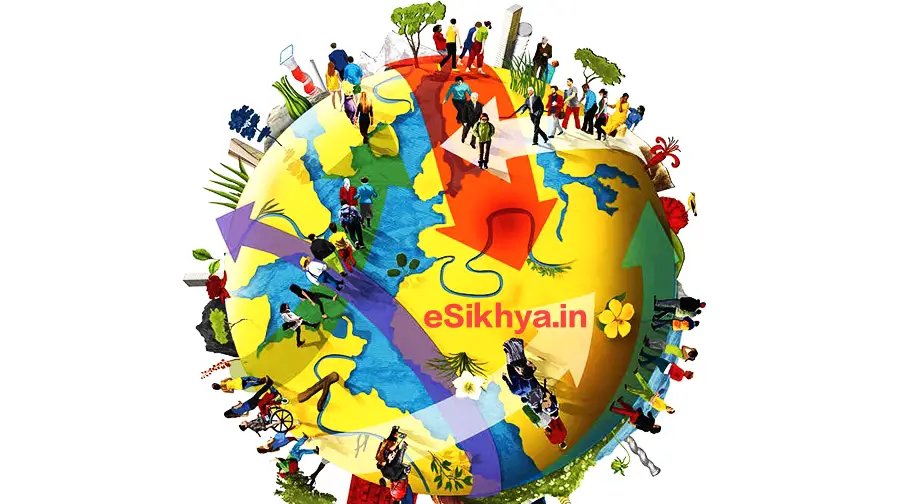Migration refers to the movement of people from one place to another, typically across political or geographical boundaries, with the intention of settling temporarily or permanently. Migration can be internal (within a country) or international (across countries), and it occurs for various reasons including economic opportunities, conflicts, environmental factors, education, and family reunification.
Impact of Global Migration on the International Economic Order
Yes, global migration significantly affects the international economic order. The international economic order refers to the structure and set of rules governing global economic relations, including trade, investment, labor markets, and capital flows.
Positive Economic Impacts of Global Migration
- Labor Market Flexibility
Migrants often fill labor shortages in receiving countries, especially in sectors like healthcare, agriculture, and construction. This enhances productivity and economic growth in developed economies. - Remittances to Home Countries
Migrants send billions of dollars home as remittances. These funds support families, boost consumption, and can reduce poverty and improve education and healthcare in developing countries. - Innovation and Entrepreneurship
Many migrants contribute significantly to innovation, particularly in tech and business. For example, a large number of startups in Silicon Valley are founded or co-founded by immigrants. - Demographic Balance
In aging societies like Japan or many EU nations, migrants help balance the demographic structure, supporting pension systems and offsetting population decline.
Negative Economic or Structural Impacts
- Brain Drain
Migration can lead to a loss of skilled labor from developing countries (e.g., doctors, engineers), which may weaken their economic and institutional capacities. - Wage Pressure and Job Competition
In some sectors, an influx of migrants may increase competition for low-skilled jobs and put downward pressure on wages, leading to social and political tensions. - Strain on Public Services
Sudden or large-scale migration can strain education, healthcare, and housing in receiving countries, especially if integration policies are weak. - Economic Dependence on Remittances
Some developing economies become overly reliant on remittances, which can create vulnerabilities if migration flows change or global economic conditions fluctuate.

Geopolitical and Economic Reordering
- Migration influences bilateral and multilateral relations, with countries forming agreements on labor mobility, border control, and refugee resettlement.
- It has prompted regional cooperation (like within the EU) and protectionist measures (e.g., immigration bans or walls), which affect trade and economic relations.
- The global distribution of labor and capital shifts with migration, challenging traditional North-South economic hierarchies and shaping new centers of economic power.
Conclusion
Global migration is a powerful force reshaping the international economic order. While it brings substantial economic benefits such as labor mobility, innovation, and poverty reduction, it also poses challenges like brain drain and social tension. The net effect depends on how effectively both sending and receiving countries manage migration through policy, integration efforts, and international cooperation.

